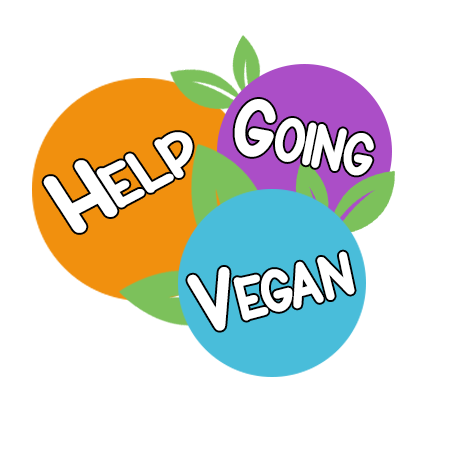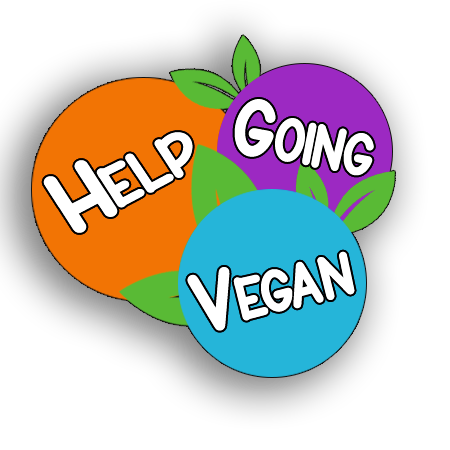Vegan Timeline
Donald Watson, Elsie Shrigley, and a small group of ethical vegetarians break away from the Vegetarian Society to form The Vegan Society in November 1944. The term “vegan” is coined by Watson, combining the beginning and end of “vegetarian” — symbolising both the origin and completion of the movement toward nonviolence. Watson defines veganism not simply as a diet, but as the direct opposition to the exploitation of sentient life. This founding moment marks the beginning of a moral movement grounded in justice, not just health or compassion.
The Vegan Society holds its first Annual General Meeting. Now more than a handful of determined individuals, the Society begins organising around clear goals. While early communications describe veganism as avoiding dairy and eggs, the ethical stance of opposing exploitation remains present from the beginning. Watson continues corresponding with members, reinforcing veganism as a moral opposition to all use of sentient life.
Leslie Cross, frustrated with the food-only focus of early vegan publications, calls on the Vegan Society to define veganism ethically. He writes a letter to the Society’s newsletter arguing that veganism should reject “the use of animals by man for any purpose whatsoever.” This moment prompts the Society to evolve from “non-dairy vegetarianism” to a moral position against all exploitation — a defining shift for the movement.
Leslie Cross plays a pivotal role in redefining veganism beyond diet. He argues that merely avoiding animal food products is not enough — veganism must mean the complete rejection of the use of animals for any purpose. This year marks the first time The Vegan Society formally articulates veganism’s ethical foundation: to end the exploitation of animals altogether.
The Vegan Society refines its understanding of veganism into two broad aspects: Focus – The moral rejection of animal exploitation Scope – Recognition that veganism relates to human injustice, environmental destruction, and systemic exploitation This is one of the first recorded moments where what we now call intersectionality begins to take root in vegan thought.
In a landmark address titled “The Surge of Freedom,” Leslie Cross frames veganism as encompassing two broad aspects: the liberation of non-human animals, and the creation of a just and peaceful human society. He explicitly links veganism to wider ethical concerns such as war, racism, and exploitation — decades ahead of intersectional discourse. This speech stands as one of the earliest articulations of veganism as a comprehensive social justice philosophy.
Leslie Cross assists founder Arthur Ling to launch the Plantmilk Society — a groundbreaking step toward vegan alternatives to dairy. Its aim is to create ethical and nutritious plant-based milks, eventually evolving into Plamil Foods, one of the first vegan food companies in the world. This shift shows how veganism wasn’t just about philosophy — it demanded practical, scalable solutions.
Eva Batt, one of the earliest and most influential vegan advocates, joins the Vegan Society. She would go on to be a Council member for nearly two decades and played a vital role in outreach, community support, and practical vegan living. Her writing, including “What’s Cooking?” and other cookbooks, made plant-based eating more accessible for everyday people.
Plamil (short for “plant milk”) becomes one of the world’s first fully vegan food companies, founded in the UK by Arthur Ling and others from the Vegan Society. Ling, a committed ethical vegan, is motivated by the desire to provide alternatives that reflect the values of non-exploitation. He ensures that all Plamil products avoid animal use entirely — from ingredients to production. Plamil sets an early ethical standard that would later influence the certification and labelling practices of vegan products worldwide.
Eva Batt opens one of the world’s first dedicated vegan shops from her home in Enfield, London. Far from a polished retail space, her kitchen became a hub for distributing vegan goods and literature — offering staples like soya flour, egg replacers, and hand-packed items. This grassroots effort was instrumental in building community support long before veganism was mainstream.
Early American vegans begin organising under the banner of the “Vegan Society of America.” Although informal and short-lived, this marked the first recorded attempt to create a structured vegan community in the U.S. It helped sow seeds that would later contribute to formal vegan movements and publications in North America.
Novelist and critic Brigid Brophy publishes an essay in the Sunday Times titled “The Rights of Animals.” In it, she challenges the moral status quo, asking: “Once we cease to believe that God gave man dominion over the beasts… what right have we to do them harm?” This marks one of the first serious public critiques of speciesism in post-war Britain and helps lay the groundwork for academic animal rights theory.
British psychologist Richard Ryder coins the term “speciesism” in a pamphlet protesting animal experimentation. He defines speciesism as an unjust prejudice — discriminating against beings simply because they are not human. This term becomes a conceptual cornerstone of modern animal rights philosophy, influencing Peter Singer, Tom Regan, and countless others in articulating veganism as part of a broader anti-oppression ethic.
Philosopher Rosalind Godlovitch co-edits the landmark collection Animals, Men and Morals, a foundational text in modern animal ethics. Alongside Stanley and John Harris, she argues that non-human animals have moral value independent of their usefulness to humans — and that vegetarianism and veganism are ethical obligations, not lifestyle choices. This book introduces many themes that would later be echoed in Regan’s and Francione’s work, and kickstarts serious academic debate on animal rights.
Plamil Foods begins using the word “vegan” on its packaging. This is the first known commercial use of “vegan” on a food product, signalling a shift toward clearer consumer communication and product integrity. It helps establish a precedent for transparent labelling and ethical branding in the plant-based market.
Vegan Views, an independent UK publication, begins circulating to discuss veganism as a philosophy and lifestyle — not just food. It provides a platform for ethical debate, animal liberation thought, environmental critique, and anti-capitalist vegan perspectives. Run by volunteers, it preserves the intellectual and moral backbone of veganism during a time of growing commercialisation.
For the first time, The Vegan Society moves into a dedicated physical office in the UK. This marks a formal shift from grassroots and home-based administration to a more structured and visible operation. The office helps coordinate publications, outreach, and volunteer work more efficiently during a time of growing interest.
The Vegan Society is officially registered as a UK charity. This formal recognition provides financial and organisational stability, allowing the Society to expand its public education and outreach efforts. It marks the end of the movement’s early phase and paves the way for more global visibility in the 1980s and 90s.
Groups like the Animal Liberation Front (ALF) escalate non-violent direct action campaigns across the UK, US, and Europe. These actions bring attention to vivisection, factory farming, and animal testing — often filmed covertly to expose hidden suffering. While controversial, these tactics spark widespread discussion about the limits of peaceful protest in the face of systemic violence.
Philosopher Tom Regan publishes The Case for Animal Rights, a major work arguing that animals have inherent value as ‘subjects-of-a-life’. Unlike utilitarian arguments, Regan defends the idea that animals have rights regardless of outcomes or human benefit. This book becomes a foundational text in rights-based vegan advocacy and academic philosophy.
A televised debate titled “The Animal Rights Debate” airs in 1989, featuring Tom Regan, Richard Ryder, Andrew Lindsey, and opponents of animal rights. Broadcast widely in the UK and watched by 1m+ people, it brings rights-based and ethical arguments into the mainstream public discourse. Regan’s calm moral clarity and Ryder’s articulation of speciesism contrast with the utilitarian and anthropocentric views of critics — sparking new awareness and controversy. And the audience overwhelmingly voting on the night that the idea should be granted.
In 1992, The Animals’ Agenda publishes a landmark article titled “Point/Counterpoint,” featuring contrasting views from Tom Regan, Gary Francione, and Ingrid Newkirk. Regan and Francione argue for rights-based, abolitionist veganism — rejecting welfare reform and animal use entirely. In contrast, Newkirk (PETA) defends incremental welfare improvements as pragmatic. This exchange captures the growing philosophical rift between abolitionism and welfarism, and marks a turning point in the movement’s self-definition.
World Vegan Day is established to mark the 50th anniversary of The Vegan Society (founded November 1st, 1944). The day celebrates veganism as a principled movement and is now recognised globally with outreach, marches, and events each year. It remains a powerful opportunity to educate the public on ethics, justice, and the future of non-violence.
Legal scholar Gary Francione publishes Rain Without Thunder, the first book-length defence of abolitionist animal rights since Regan. He critiques the rise of “new welfarism” — advocacy that accepts animal use as long as it is “humane” — arguing that such reforms entrench exploitation rather than end it. Francione calls for veganism as a moral baseline, setting the stage for his later development of the Six Abolitionist Principles. This work revives and clarifies the original anti-use stance of early veganism.
UK legal precedents begin recognising ethical veganism as a protected philosophical belief under the Equality Act 2010. This means employers and institutions must not discriminate against ethical vegans for their principles or lifestyle. It represents an important moment of legitimacy and rights recognition for vegan thought.
The Vegan Society celebrates its 80th anniversary — marking eight decades of unwavering advocacy for nonviolence and justice. Veteran and new abolitionist voices reaffirm the original principles: not dietary preference, but a moral stance against exploitation of sentient life. The movement continues to evolve, rooted in clarity, compassion, and courage.

